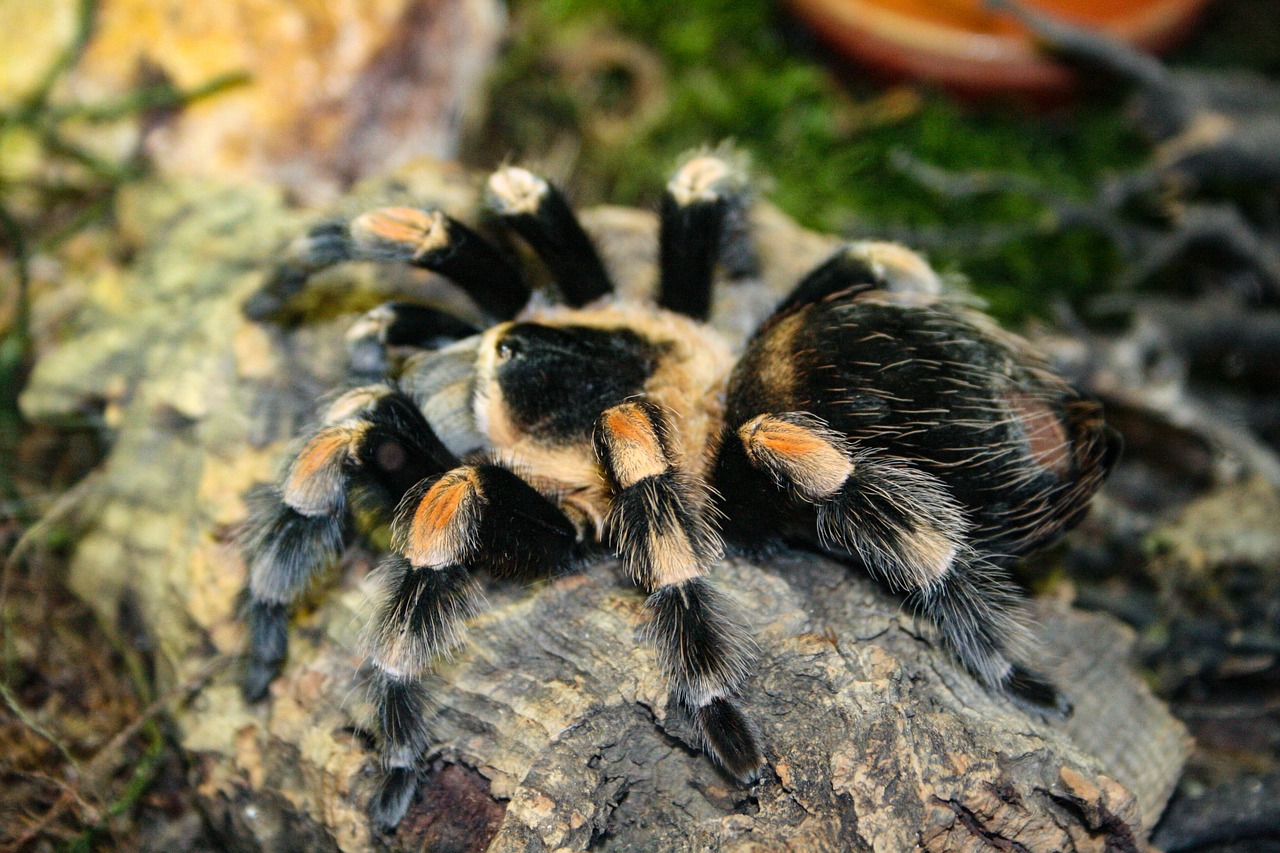
So you got a new tarantula, and everything was going fine for a while, but suddenly your exotic won’t eat anything you offer in its terrarium. What gives? Is your arachnid okay? Do you need to do something about this? It turns out there are several different reasons why your pet may not be interested in food. Here are the most common answers to the question, “Why won’t my tarantula eat?”
Your spider is full
Tarantulas really don’t need to eat very often. In fact, feeding about once a week is sufficient. If you are feeding your adult spider every day, you will quickly overfeed it. And your pet may compensate by going months without eating. This is nothing to be alarmed about. If you have overfed your spider, rest assured that it eventually will eat again.
Your tarantula is molting
All tarantulas molt at some point in their lives. Young spiders may molt very often. And when this occurs, they will typically go without eating for several weeks before the molt. If your spider’s eating habits and other behaviors seem to be different from ordinary, it is likely that a molt is approaching.
Adult males rarely, if ever, molt. However, adult females will continue to molt about once every year. Your tarantula will also take some time after the molt to recover before proceeding to eat. Hold off on feeding for the week after a molt. A spider is quite vulnerable while it waits for its new exoskeleton to harden, and you absolutely should not introduce food to the enclosure during this time.
Your spider is under stress
Just like your own eating patterns change when you are under stress, you may notice that your tarantula changes its habits during periods of stress. If you took your arachnid to a show or even just changed out its enclosure at home, your pet may be adjusting to its new surroundings. In this situation, many spiders will refuse food until they feel more comfortable. You may find that your spider resumes eating once it settles in. Additionally, leaving uneaten crickets or other food in the terrarium may stress out your spider—they love their peace and quiet.
Your tarantula has no reason
Some tarantula species, like the Chilean rose hair, simply stop eating for long periods of time. This is not detrimental to their health, and more often than not your tarantula will eventually begin eating again. Unlike with some pets, refusing food is not necessarily a sign of poor health in tarantulas when unaccompanied by other symptoms. You will know that your spider is in distress if its abdomen begins to shrivel up rather than appearing full and round or if its legs start to curl up underneath it.
The bad news: parasites
One health concern that may actually present with a refusal to eat is parasites. Some types of worms can actually paralyze the spider’s chelicerae. When this happens, they physically cannot eat. Unfortunately, there is very little that can be done about parasitic worm infections.
Find out more about how to feed your tarantula by talking to our expert staff at The Tye Dyed Iguana.
